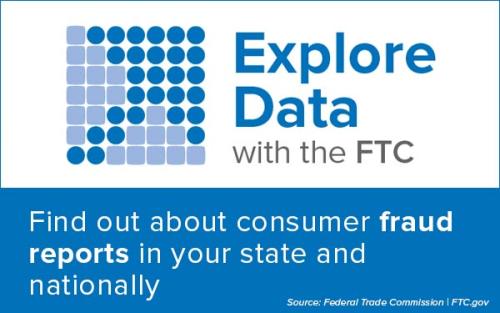At the request of the Federal Trade Commission, a federal court today approved settlements that will require the forfeiture of assets valued at about $40 million from a group of defendants who allegedly defrauded consumers nationwide by enrolling them, without their knowledge, into continuity plans for CBD and keto-related products that they did not agree to buy.
In addition to imposing monetary judgments, the orders permanently ban all the defendants from the alleged illegal conduct, as well as from debiting money from consumers’ accounts without prior authorization and from credit card laundering. They also require the defendants to turn over or relinquish claims to substantial assets, as set forth in the orders, which will be used to provide refunds to consumers who incurred unauthorized charges from the defendants’ alleged conduct.
The defendants include U.K. resident Harshil Topiwala, Florida resident Kirtan Patel, and the three companies they operated, Legion Media, LLC, KP Commerce, LLC, and Pinnacle Payments, LLC (together, the Legion Media defendants) as well as Florida resident Manindra Garg and a company he operated called Sloan Health Products, LLC.
According to the FTC’s complaint, the Legion Media defendants operated two types of unauthorized billing scams and participated in business impersonation scams, facilitating them by securing merchant accounts using shell entities to process unauthorized online charges. Sloan Health allegedly worked with Legion Media by shipping the deceptively marketed personal care products and handling the large volume of customer returns. It shared in the profits of the scheme and distributed the products to consumers without providing any information that would reveal their actual identities.
Based on these allegations, the complaint charged the defendants with violating Section 5 of the FTC Act, the Restore Online Shoppers’ Confidence Act (ROSCA), and the Electronic Funds Transfer Act (EFTA).
The court approved three orders settling the FTC’s complaint that contain similar conduct provisions and separate provisions detailing the monetary judgments imposed by the court against Topiwala, Legion Media, LLC, and Pinnacle Payments, LLC; Garg and Sloan Health Products LLC,; and Patel and KP Commerce, LLC.
Conduct Provisions. The three orders permanently ban all defendants from marketing or selling any product or service using a negative option feature. They also ban the defendants from marketing or selling any product or service as a “forced upsell,” including by using pre-checked boxes for upsells or by bundling products together with no way for consumers to opt out.
The orders also prohibit the defendants from failing to disclose certain facts regarding costs, charges, refund and cancellation policies, endorsements, and “free” trial offers, and require them to have adequate substantiation before making health-related claims for CBD, skincare, or weight-loss products, or any other food, drug, dietary supplement, or cosmetic.
Further, the orders bar all defendants from violating the EFTA and engaging in illegal credit card laundering practices. They are also prohibited from failing to disclose material facts to a financial institution relating to obtaining a merchant account and from engaging in any tactics to avoid detection by fraud and risk-monitoring programs, including the use of shell companies. Finally, the orders prohibit all defendants from passing consumers’ billing information to another seller and from violating ROSCA.
Monetary Provisions. The court imposed a $30 million judgment against Topiwala and his companies. The judgment will be suspended after they turn over or relinquish claims to bank accounts and other assets, including a collectible Michael Jordan worn jersey and shorts from the 1998 Eastern Conference Semi Finals (purchased for $1.35 million) and a Richard Mille Tourbillon Aerodyne watch (purchased for $1.225 million).
The court imposed a $30 million judgment against Garg and Sloan Health Products, which will be suspended after they turn over or relinquish claims to bank accounts and other assets, including luxury cars, watches, and jewelry. The order against Patel and KP Commerce imposes a $3 million judgment, which will be suspended upon the transfer of cryptocurrency assets valued at approximately $100,000 to the FTC.
The Commission vote authorizing staff to file the proposed orders was 5-0. They were filed in the U.S District Court for the Middle District of Florida, Tampa Division, and have been signed by District Court Judge John Badalamenti.
NOTE: Stipulated final orders or injunctions have the force of law when approved and signed by the District Court judge.
The FTC recognizes the assistance that the following partners provided in this investigation: the United States Postal Inspection Service in Nashville, Tennessee, the Attorney General’s Offices in Florida and Tennessee, and the Better Business Bureau in West Florida.
The lead staff attorneys on this matter are Darren H. Lubetzky, Vikram Jagadish, and Karen Dahlberg O’Connell of the FTC’s Northeast Region.
The Federal Trade Commission works to promote competition and protect and educate consumers. The FTC will never demand money, make threats, tell you to transfer money, or promise you a prize. Learn more about consumer topics at consumer.ftc.gov, or report fraud, scams, and bad business practices at ReportFraud.ftc.gov. Follow the FTC on social media, read consumer alerts and the business blog, and sign up to get the latest FTC news and alerts.

